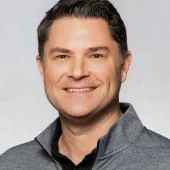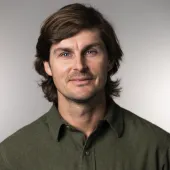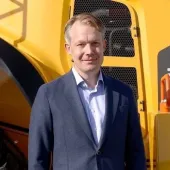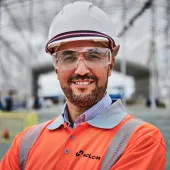New Institute of Quarrying President outlines his priorities for the future
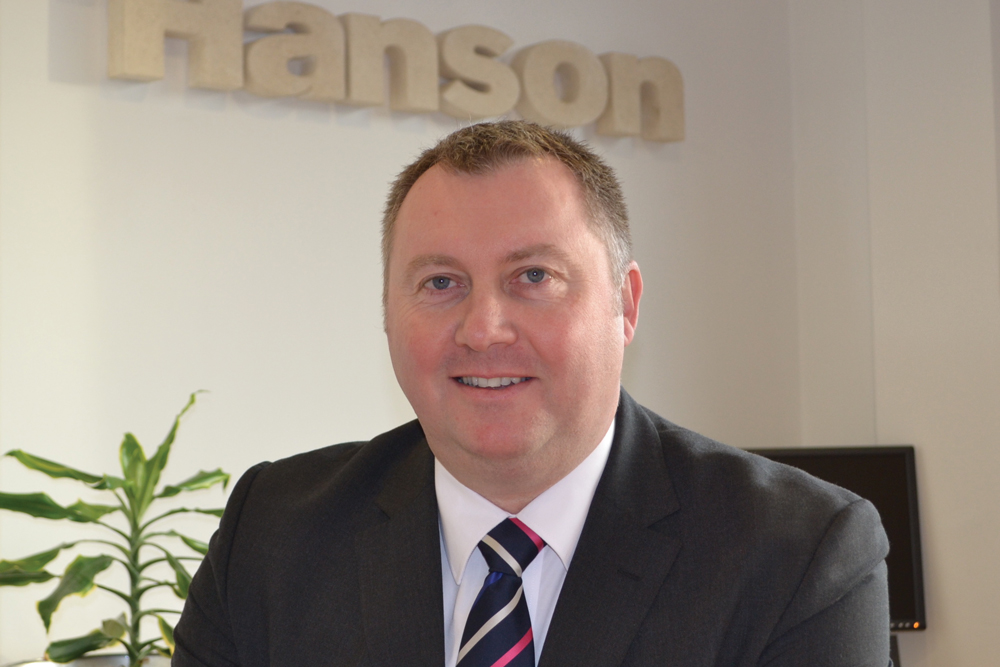
First published in the October 2018 issue of Quarry Management as Changing of the Guard
Last month saw Phil Redmond, managing director of Hanson Aggregates UK, take over from Miles Watkins as President of the Institute of Quarrying. In a recent Q&A session with QM, he spoke about his background and training in the industry, the benefits of IQ membership, and how the Institute can contribute to the industry’s current priorities.
Quarry Management: How would you summarize your career to date?
Phil Redmond: As early my very first role in a quarry, which was a student placement at ICI’s Tunstead Quarry in Derbyshire whilst studying at Sheffield Polytechnic, it was clear to me that the quarrying industry was the one for me. It hooked me completely and, barring a short two-year spell in the oil exploration industry, I have never worked in anything other than the minerals and construction materials sector.
My early roles were in trainee manager and assistant manager positions in South Wales, plus short spells around the rest of the country, with Pioneer Aggregates. I moved through the ranks, holding quarry manager positions of increasing scale and responsibility, into unit manager roles and up into area operations manager, operations director and regional director roles, then into managing director appointments since 2009. These positions were in various Hanson divisions, such as Civil and Marine, Contracting, Asphalt and Contracting, and my current role as managing director of Aggregates, which I have held since 2012.
Adding it all up, I have been in quarrying or related industries since 1988, that’s 30 years.
QM: Why did you choose quarrying as a career?
PR: I was attracted by the scale and pure fundamental process of winning mineral and turning it into something of use for society. I was always interested in the built environment and had a keen interest in knowing where the materials for these projects came from.
Once I began to understand how it all came together, my fascination drove me to learn more about the sector. My time in further education could have seen me chose an alternative path. The course of study I took also focused heavily on mining and mineral ore processing, such as iron and steel production. Coming from South Wales, I could have found myself working in a steelworks, like some of my family.
However, I fell in love with mineral extraction and processing. Ultimately, the people I have worked with have kept me engaged. I have never been tempted to do anything else. Every day is different. It is a cliché, I know, but for me it’s true. The industry has never provided me with anything less than a fulfilling challenge.
QM: What training/development/support did you have to get to where you are today?
PR: The early days saw plenty of vocational and competency type training, such as the old Blast Design and Shotfiring exams. Then, like many of my peers, I moved on to the DAPS course – Doncaster Assisted Private Study. These were great years; as well as giving me the ability to join the Institute of Quarrying (IQ) as a ‘member by examination’ they also delivered an element of learning to underpin experience. DAPS gave me a great insight to the practical applications of aggregates, asphalt and concrete. It was the solid benchmark of the time, as well as giving me the chance to mix with my peers from other companies during those long ‘study’ weekends in Doncaster!
QM: When did you become a member of IQ, and why?
PR: I think it was about 1990, as soon as I enrolled on the DAPS course. Those who were around me extolled the virtue of the IQ network, as well as the learning. The local branches were strong and really well attended. It gave me a chance to exchange experiences, ask questions and really pick the brains of the much more experienced lifelong quarry managers who attended the meetings. Even though some of them saw me and my colleagues as young whippersnappers, they were still very keen to pass on their experience. They knew we were the future of the industry.
QM: Has IQ membership made a difference to your career, and how?
PR: Without a doubt it has. It was and still is a fundamental part of being able to demonstrate competence as a professional in my field. Even in the current daily role of myself and my management team, we look to recruit those with membership for managerial and operational roles. We also actively promote membership for new recruits and postgraduates joining us as they embark on their careers.
It is very difficult to say categorically how much it has helped my personal career, as there were a lot of other factors at play at any one time, but without my membership and the continuous professional training the Institute has provided, my career progression in the earlier years may not have been so accelerated through various positions of increasing responsibility.
QM: Why did you want to become IQ President?
PR: I knew from the outset that to become President involved holding the positions of vice-chairman and chairman, and under normal circumstances this would require a six-year commitment. I discussed this with my manager at the time and both he and the company were very supportive. I was more than happy to commit to this six-year journey.
Having been secretary and chairman at branch level for the South Wales branch, I saw first-hand that the branches do not function without the dedication and commitment of the local officers, members and suppliers. I experienced the highs and lows of running a branch and I thought then that if I ever had the opportunity of holding a position on the national board, I would take it because I had something to offer.
I had the experience of helping to run a local branch and therefore I could offer the board an insight into what it takes and ensure that the national Institute understood what it had to do to support the local branches right down to the individual member.
I also firmly believe in the value and contribution of the industry, and becoming President will allow me to devote some of my personal time and energy into the positive promotion of what we achieve for our members, the economy and society as a whole.
As an industry, we have achieved major advances in terms of improving the health and safety performance of our operations. We have led on delivering sustainable, positive environmental change. I feel very proud to have been associated with helping deliver these changes, but I want us to continue to improve and I am committed to helping the Institute play its part.
I firmly believe in our sense of purpose and I knew that if I had the chance, I would do my bit to further the goals of the Institute.
QM: What do you see as the immediate priorities for the industry?
PR: I believe we have three immediate priorities:
- Our demographic shows we have an experienced workforce, but with this comes the challenge of securing a competent and engaged replacement workforce. We have to become an industry that new talent wants to be a part of.
- We have a real diversity challenge in our industry. The Institute has a huge part to play in helping create an environment that attracts the talent we need to sustain the industry’s future, and this talent has to come from all parts of society. There are very real benefits to be had from widening our appeal and recruiting beyond our historical pools.
- The previous 100 years of the Institute have seen its place in the sector cemented through solid, tried and tested practices – both operationally and educationally. The next 100 years will be very different. In fact, the next 5–10 years will see a complete change in how the industry operates and the Institute must change and adapt. Actually, adapting is too late, we must be at the forefront and a pioneer of the journey. Digitalization will completely change how our industry operates, how our future members receive their training and how the Institute will grow globally. The Institute is being presented with an opportunity and this must be grasped firmly and quickly.
QM: How will IQ contribute to those priorities?
PR: The Institute has recognized these priorities and is already working on the roadmap to ensure we can face the challenge. The international presidents have been working for several years on developing a platform for growth and opportunity. The technology is available and the Institute globally has recognized this is a force for positive change.
Digitalization will give us the opportunity to reach new audiences, attract new talent and promote our industry as a leading driver of social change and mobility through our support of the built environment, and this will happen at a pace unheard of previously. This pace can sometimes appear too quick for someone like me who has been around a bit; I’m the past and the present of the industry, but I’m not the future. However, I have to play my part in preparing the Institute for the future.
The speed at which our future members and leaders will receive their information, data and training is beyond our current comprehension. In fact, we only have a narrow view currently of how this information and data will be used. We do know, however, that it is happening, and it is happening now. We have to be ready for it – in fact we have to be a part of it.
- Subscribe to Quarry Management, the monthly journal for the mineral products industry, to read articles before they appear on Agg-Net.com


